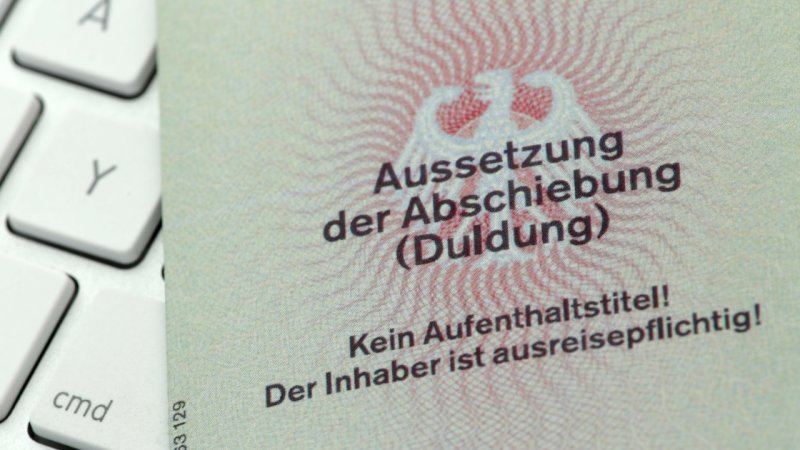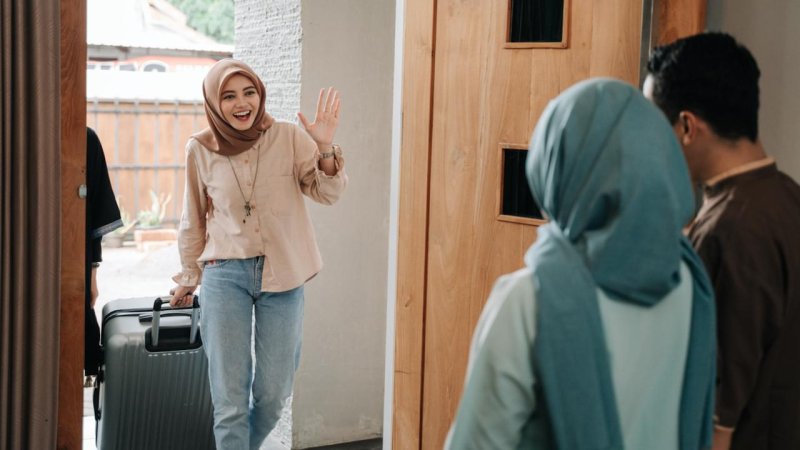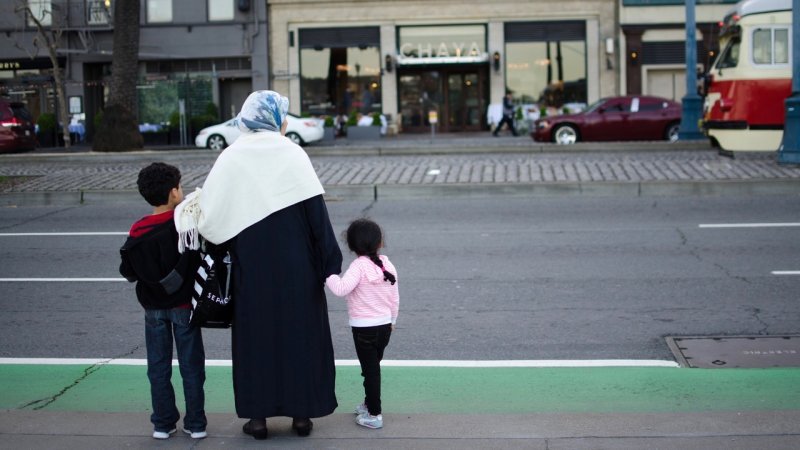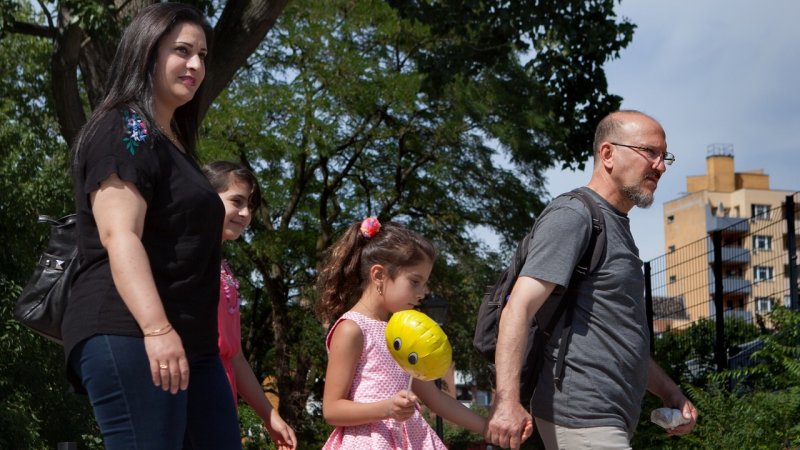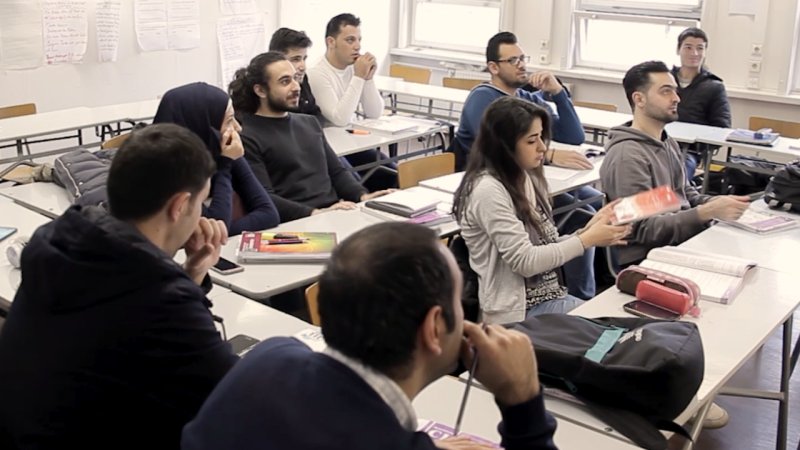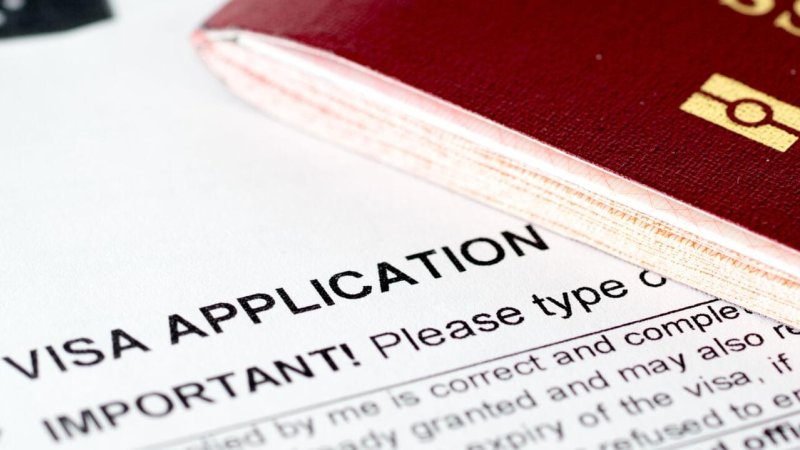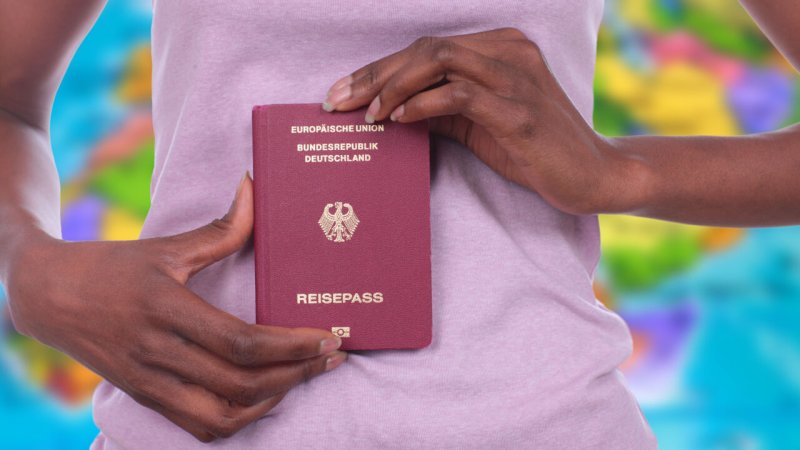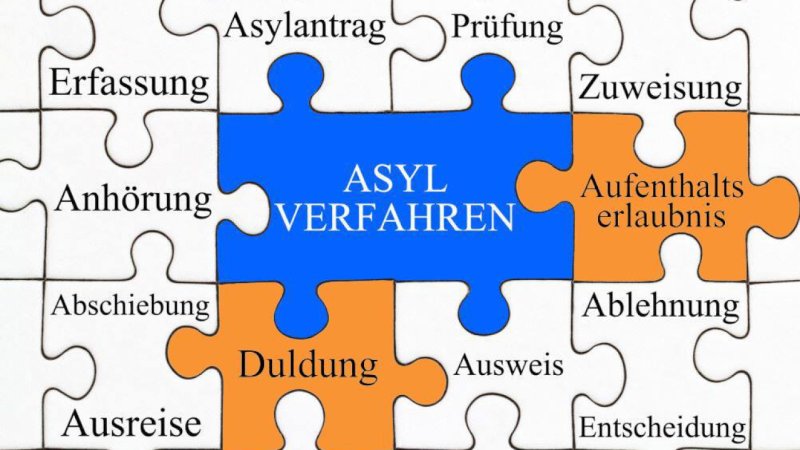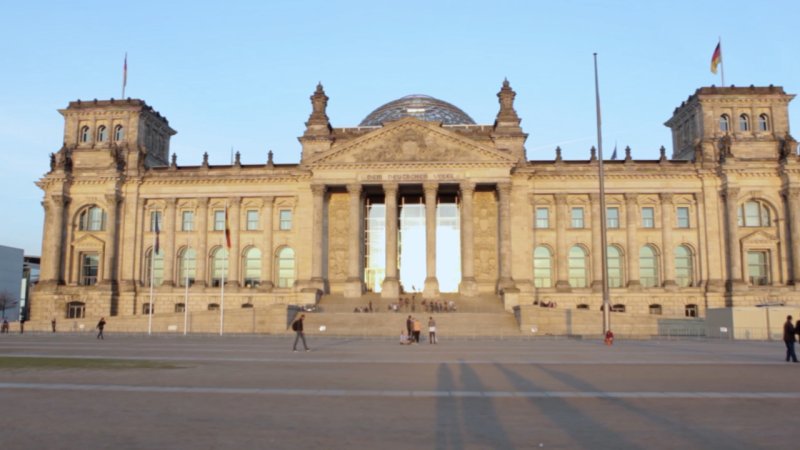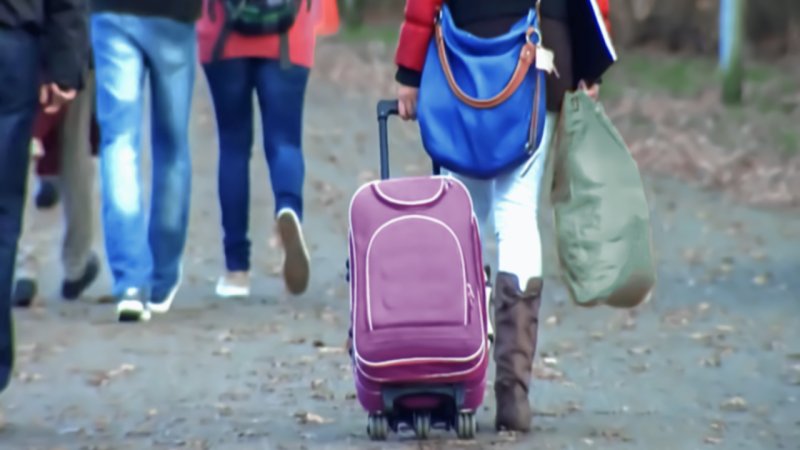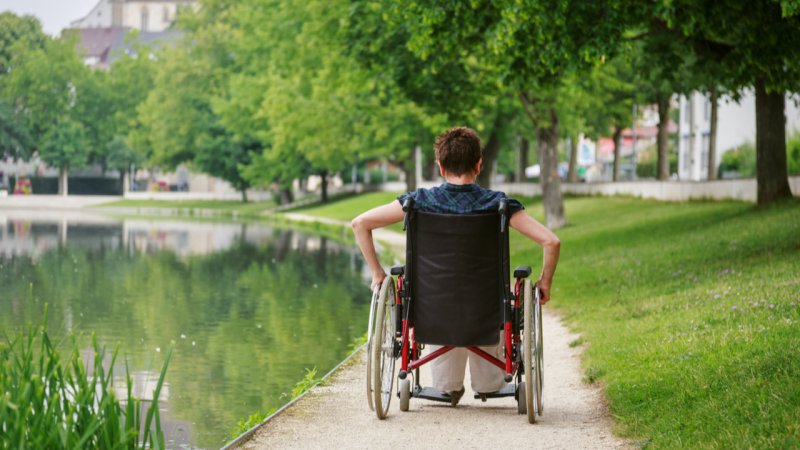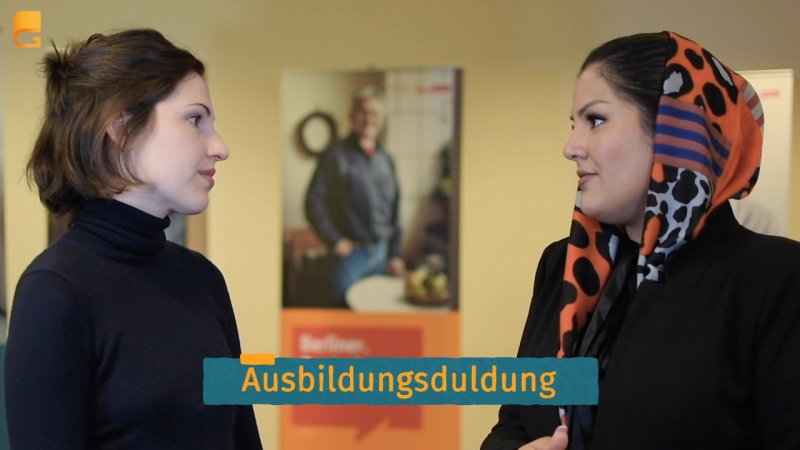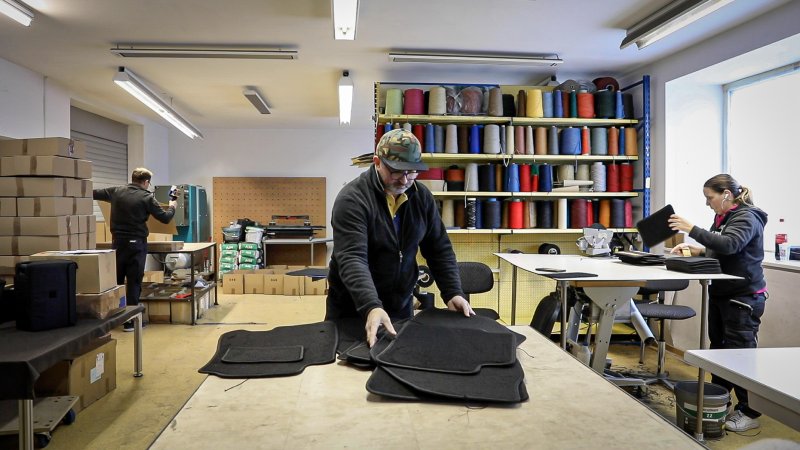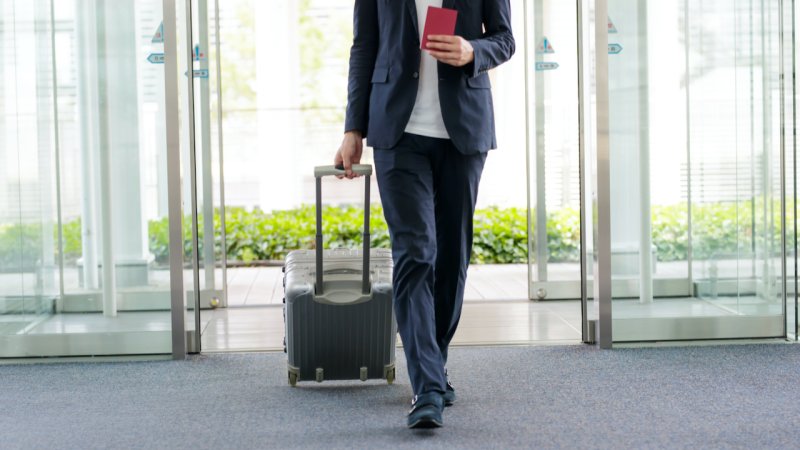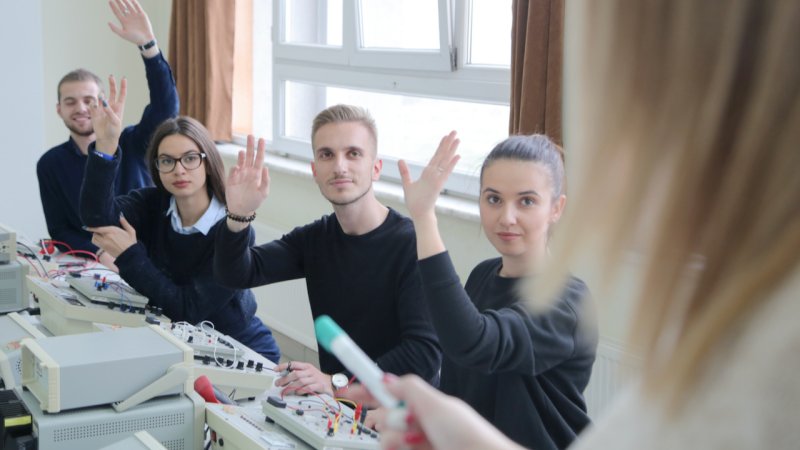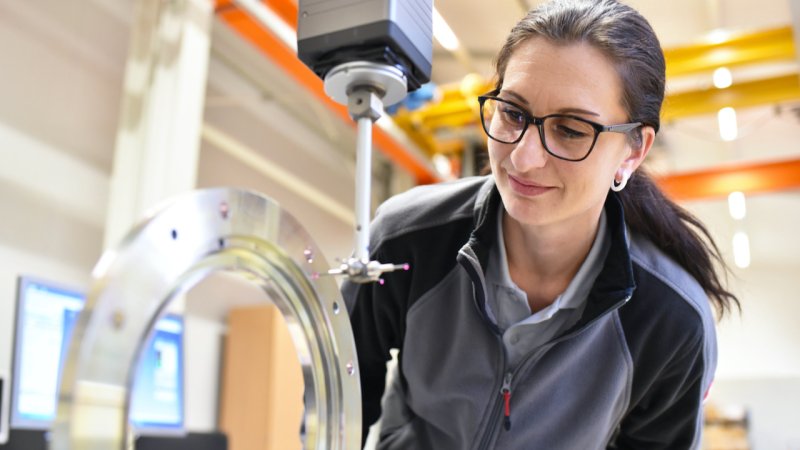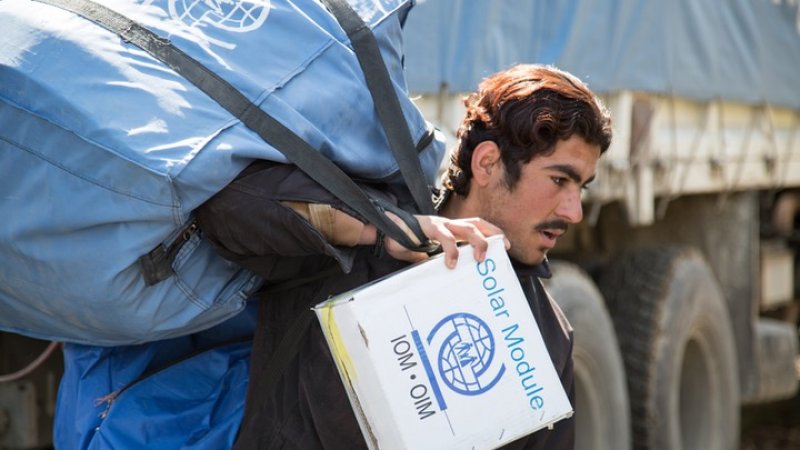Migration
Everything about visas, residence and naturalisation
"Chancen-Aufenthaltsrecht" for people with "Duldung"
The new "Chancen-Aufenthaltsrecht" (roughly: Opportunity Residence Act) stipulated in §104c Residence Act has come into force on 31 December 2022. It stipulates issuing a residence permit for 18 months and only those who currently have a “Duldung” or “Duldung Light” can apply for it.
The new law applies to people who have been in Germany for five years with a "Duldung" (Tolerated Stay Permit) or "Aufenthaltsgesstattung" (Temporary Residence Permit), have not committed a criminal offence and profess the German constitution. During these 18 months, the person should try to meet the requirements for a permanent right to stay, in particular, per § 25a and 25b Residence Act. If they fail, they will be issued a "Duldung" again.
Important: If you are in Germany with a tolerated stay permit or “Duldung”, you should seek advice whether a residence permit under §25a or §25b of the Residence Act could also be an option for you. In order to be granted the right to stay according to this new law, you must meet certain requirements. You can learn about these requirements in our chapter "Residence rights for individuals with ‘Duldung’".
Changing Residence Title and Purpose of Stay
The new regulations of the Skilled Immigration Act introduce concepts known as "change of purpose" („Zweckwechsel“) and "track change" („Spurwechsel“). When you enter Germany, your stay is always subject to specific conditions. For instance, you need a visa or can apply for asylum if necessary. A visa is always tied to a particular purpose, an entry reason. Generally, you receive your residence permit only for this specific purpose. If you wish to change your type of stay in Germany, this is referred to as a change of purpose („Zweckwechsel“). In such cases, you are often required to undergo the visa process again.
There are various possibilities and restrictions. A notable exception exists for those entering due to asylum, known as a track change („Spurwechsel“). Previously, there was a strict restriction against switching the type of stay after entry due to asylum. The new laws now aim to allow qualifying asylum seekers to transition into the labour market, particularly as skilled workers. To do so, the asylum application must be withdrawn first. Whether this is advisable depends on your individual case. Here you can learn more about "change of purpose" („Zweckwechsel“) and "track change" („Spurwechsel“).
Declaration of Commitment for a Visitor Visa
To obtain a visitor visa for Germany, third-country nationals (non-EU citizens) usually have to prove that they have enough money to support themselves during their stay, even if they only want to visit family or friends for a short time. But if someone cannot prove they have enough money themselves, someone living in Germany can vouch for the visitor(s). This can be a relative or acquaintance - or a company or institution in Germany that can prove they have enough money. Such a guarantee is known as a "Verpflichtungserklärung" or "declaration of commitment", and visitor(s) can present it to the embassy as proof of funding when they apply for their visa(s).
Here you can learn whether and how you can submit a declaration of commitment for a visitor visa. You can find all the other details about visitor visas in our chapter "Visitor Visa". And, you can learn more about the declaration of commitment for long-term stays in our chapter "Declaration of commitment for a national visa".
Declaration of Commitment for National Visa Type D
When third-country nationals (i.e. citizens of non-EU countries) want to apply for a national visa for Germany, they usually have to prove that they have enough money to support themselves during their stay. If they cannot do so themselves, a person living in Germany can vouch for them under certain circumstances. This can be a relative, acquaintance or a company or institution that can prove they have sufficient funds. Such a guarantee is known as a "Verpflichtungserklärung" or "declaration of commitment". A declaration of commitment can then be presented as proof of financial support for the visa application. Such financial support, however, does not work for all visas - in principle, it only applies to the following visas:
- Student visa
- Vocational Training visa
- Jobseekers visa
- Marriage visa
- Visa for attending a language course/school
- Visa to search for a vocational training or university programme
- Visa for family reunification
- Visa for state-level admission programmes per § 23 para. 1 Residence Act
Here, you can learn everything about the declaration of commitment for long-term visits. In our chapter "Declaration of Commitment for a Visitor Visa", you can learn more about the Declaration of Commitment for short-term visas.
Please note:
On July 7th, 2023, a new skilled worker immigration law was passed. It includes numerous changes and amendments to facilitate the immigration of skilled workers and make Germany more attractive to them. It is unclear when exactly these changes and amendments will be enforced. When the time comes, we will update our website– we encourage you to visit us regularly to stay well informed.
EU Blue Card
The EU Blue Card is similar to the American Green Card. It is a special form of residence permit for those who want to work as qualified professionals in Germany. You can apply for an EU Blue Card whether you are already in Germany or still abroad in another EU country or a so-called "third country". You can find out how to apply in section "Where can I apply for an EU Blue Card?" below.
The new EU Blue Card: From November 18, 2023, the immigration options with EU Blue Card are partially expanded. The requirements are regulated in Sections 18, 18b, 18c, 18g and 19g of the Residence Act, which are based on the EU Directive 2021/1883.
The EU Blue Card offers the opportunity to apply for a national residence permit in accordance with Section 18g Residence Act. It can be a great option for academic professionals, experienced IT specialists without a university degree and graduates of so-called "tertiary education programmes".
Advantages of the new EU Blue Card: More occupational groups are taken into account and the minimum salary thresholds have been lowered. German language skills no longer need to be proven in order to apply for an EU Blue Card. This also applies to the reunification of spouses. Easier access to permanent residence (Settlement Permit according to § 18c para. 2 Residence Act) is also significant: residence periods are much shorter and employment is subject to social security contributions. In addition, the language requirements for applying for permanent residence have been significantly lowered (A1 is sufficient).
Important: The new EU Blue Card regulations require quite an adjustment within German bureaucracy. Therefore, the process may be slightly delayed.
Please note: An EU Blue Card can be applied for in all EU Member States except Denmark, and Ireland. However, the preconditions, such as the amount of the minimum annual salary, differ from country to country.
*The information on this page has been reviewed and verified by our consulting lawyer Astrid Meyerhöfer.
EU Permanent Residence Permit
The EU permanent residence permit is a specific form of permanent residence permit. With an EU permanent residence permit, you have the option of obtaining a residence permit in other EU countries; that is, under certain conditions, you can live and work in another EU country. The EU permanent residence permit has unlimited validity. You can also apply for it in addition to a permanent residence permit. With a permanent residence permit, you may stay in another EU country for up to 90 days but are not allowed to live or work there. You can find out more about permanent residence permit in our chapter "permanent residence permit".
Family Asylum
If your family has come to Germany after your recognition as an individual entitled to asylum, refugee status or subsidiary protection and in the framework of family reunification, they have the option to apply for family asylum ("Familienasyl"). If accepted, your family will have the same status and rights as you do.
Family Reunification for Immigrants
Marriage and the family are under special protection in Germany. Nevertheless, it is not that straightforward for the so-called third-country nationals to bring their family to Germany. Whether you can bring your family to Germany depends primarily on your residence status. In addition, however, you need to meet many other requirements.
Here, you can find out everything about family reunification for third-country nationals without a refugee background. The prerequisites for refugees are different. If you are a refugee, you can read more about family reunification in our chapter "Family reunification for refugees".
Family Reunification for Refugees
If you want to bring your family to Germany, there are several rules and regulations you should keep in mind. The most decisive factor is your residence status. In case your asylum procedure is still ongoing, or you have a so-called "Duldung", family reunification for you is, in principle, not possible. But if you are granted asylum or recognized as a refugee, you have the right to reunite with your family in Germany. For the individuals with subsidiary protection and those for whom there is a national ban on deportation, currently, special regulations apply.
Here we go through right of family reunification for individuals who came to Germany as refugee - for others who come to Germany there are different regulations. You can learn more in our chapter “Family Reunification for Immigrants”.
Independent Right of Residence for Spouses ("Eheunabhängiges Aufenthaltsrecht")
After the end of a relationship or a partner's death, there are often many issues to clarify. If you are not from Germany, you usually have to apply for a new residence permit, particularly if you have come to Germany via family reunification because your partner was already living here. If you separate or your spouse passes away, you may lose your right of residence. However, under certain conditions, you can remain in Germany. These conditions have been regulated within the "Independent right of residence for spouses" ("Eheunabhängiges Aufenthaltsrecht") in §31 Residence Act.
Integration Courses
If you have recently arrived in Germany, you may find that the language is one of the biggest challenges to face. In order to interact with German authorities, study at university, do vocational training or find a job, you often need to be able to communicate in German. Knowing German also facilitate your settling down in Germany and enables you to connect to other German-speakers on a personal level.
In an integration course, not only you will acquire the language, but also learn quite a lot about German culture and society. In this page, you can find out what exactly an integration course is and whether you can take part in it – you will also learn about the offices which can potentially cover the respective costs.
Invitation Letter for Visitor Visa
Do you wish to invite friends, family members or business partners to Germany? For third-country nationals to get a visitor visa, they need a letter of invitation on top of many other documents. With the invitation letter, you confirm that you want to invite a specific person to Germany. An invitation letter must meet particular requirements, which we describe in more detail below. You can find out more about other requirements of a visitor visa in our chapter "Visitor Visa".
National Visa Type D
All citizens of so-called "third countries" (non-EU countries) need a visa to stay in Germany for more than three months or work here. That means only citizens of the EU countries and Australia, Israel, Japan, Canada, New Zealand, the Republic of Korea, Great Britain, Northern Ireland, and the US do not require a visa to enter Germany. The long-stay visa most foreign citizens need to obtain is called the "National Visa Type D".
Most people from third countries also require a visa for shorter visits. You can find out more about it in our chapter "Visitor Visa".
- The information on this page has been reviewed and verified by our consulting lawyer, Astrid Meyerhöfer.
Naturalisation
Many people who come to Germany think about applying for German citizenship eventually. With German citizenship, you can vote and also run for political office in Germany. Furthermore, you will be able to benefit from freedom of movement within the EU and can live and work in other countries in the European Union without a residence permit. With a German passport, you can also travel to many countries without a visa. Inside Germany, having German citizenship saves you from some administrative obligations, as you no longer have to go to the Immigration Office.
If your parents are German citizens or if you were born in Germany (provided your parents meet specific requirements), you will be automatically granted German citizenship. You will learn more in our chapter "Born in Germany". You can also obtain German citizenship without being born here or having parents who are German citizens. To do so, you need to go through a process called naturalisation ("Einbürgerung").
The new Naturalisation Act has been passed and came into force on 27 June 2024. These are the most significant changes, in brief:
Shortening of the residence period
- The required period of residence in Germany for entitlement to naturalisation has been reduced from 8 to 5 years.
- Those who are considered “particularly well-integrated” („besonderer Integrationsleistung“) can apply after 3 years of residence instead of 6.
Multiple nationality
Dual nationality and multiple citizenship are now permitted for ALL. This was previously only possible for people with certain nationalities.
Relief for certain groups of people
Former guest workers and contract workers do not have to provide written proof of B1 German language skills and do not need to take the naturalisation test. It is sufficient if they can communicate well verbally.
Extension of the commitment to the free democratic basic order
A new addition is the acknowledgement of Germany's responsibility for the Holocaust, in particular for the protection of Jewish life.
Fewer exceptions to securing livelihood
Only a few people are now exempt from the requirement for securing a livelihood. Learn more in the section "What requirements must I meet for naturalisation?"
Permanent Residence Permit for Immigrants
A permanent residence permit (also known as "settlement permit") is, in fact, an unlimited permit to reside in Germany, i.e. contrary to a regular residence permit, you do not have to have your permanent residence permit extended frequently at the immigration authorities. A permanent residence permit also allows you to work without restrictions.
In order to get a permanent residence permit, some requirements apply:
- You must have had a residence permit for at least 5 years.
- You must be able to secure a living for yourself (and your family) independently, i.e. you are not allowed to receive any money from the Job Centre or Social Welfare Office. Child benefits (“Kindergeld”) and parental allowance (“Elterngeld”) count as exceptions to this rule.
- You must be able to speak German at level B1 and provide relevant evidence.
- You must have made pension insurance contributions for at least 60 months. The amount of contributions does not matter. Learn more in our chapter "Retiring in Germany".
- You must have enough living space for yourself and your family. Note: The standard size varies from state to state - ask the staff at the Immigration Office or a counselling centre nearby for more information.
- You must have a work permit.
- You must have successfully completed the orientation course. Find out more in our chapter "Integration course".
- You must not have committed any major offences (Minor convictions with fines of up to 90 days of income or suspended sentences of up to three months do not, in principle, affect your case)
If you meet all the prerequisites mentioned above, you can receive a permanent residence permit and settle in Germany.
For some groups of people, however, the requirements for obtaining a permanent residence permit are somewhat more straightforward.
* The information on this page has been reviewed and verified by our consulting lawyer, Astrid Meyerhöfer.
Permanent Residence Permit for Refugees
If you came to Germany as a refugee and have been issued a residence permit for political or humanitarian reasons, upon fulfilment of certain pre-conditions, you can apply for a permanent residence permit (“Niederlassungerlaubnis”) after at least 5 or (in special cases) 3 years.
A permanent residence permit allows you to reside in Germany without having to extend your residence permit regularly. With a permanent residence permit, you may also choose to live anywhere within Germany, as residence restrictions will no longer apply.
In addition to the German permanent residence permit, there is also an EU permanent residence permit. With an EU permanent residence permit, you have the possibility of obtaining additional residence permits from other EU-countries. You can learn more in our chapter "EU permanent residence permit ".
If you are in Germany as a skilled worker or hold an EU Blue Card, you may be able to obtain a permanent residence permit under simplified conditions. You can find out more in our chapter on "Permanent Residence Permits".
Residence and Citizenship for Babies Born in Germany
When a child is born, the joy of parenting is often accompanied by various questions and concerns. Apart from general questions about pregnancy and childcare, refugee/migrant parents often have to address other issues, such as residence permit. In this chapter, you can learn about the residence rights to which you and your children are entitled when you have a child in Germany.
Residence Permit for Vocational Training (§16g AufenthG)
The Residence Permit for Vocational Training per § 16g Residence Act (“Aufenthaltserlaubnis zur Berufsausbildung”) is an alternative to the tolerated stay permit for vocational training (“Ausbildungsduldung”) available for people who are required to leave the country from March 1, 2024. Both options enable the holder to remain in Germany to go through vocational training. You can still opt for “Ausbildungsduldung” if you so choose, but the residence permit for vocational training has some advantages. You can find out what requirements you have to meet and further information here.
Residence Permits for Individuals with "Duldung"
Many live in Germany with "Duldung" for years. But those with "Duldung" who meet specific requirements can also obtain a residence permit. If you do not meet all the conditions, you can seek advice from a counselling centre. You will find counselling centres nearby on our Local Information page. You can enter the name of your city and search for asylum, residence or legal counselling centres.
Please note: The months or years during which you have a "Duldung für Personen mit ungeklärter Identität" or "Duldung Light" (according to §60b of the Residence Act) are not counted as your pre-“Duldung” period. That means they don't count when you are required to be in Germany for a certain number of years to qualify for a certain type of residence permit. You can learn more in our chapter ""Duldung" for people with "Unclear Identities""
NEW: A new law known as “Chancen-Aufenthaltsrecht” has been recently introduced: It is intended to enable people with a “Duldung” to obtain a permanent right to stay. According to the law, the time you stayed in Germany with a "Duldung light" is also counted as your pre-“Duldung” period. You can read more about it in the section “Residence permit according to ‘Chancen-Aufenthaltsrecht’ (§104c Residence Act)” below.
Residence Permits for Refugees
Here, you will find useful information concerning residence permits for those who have applied for asylum in Germany. You will learn about the existing forms of protection available, the rights associated with them and the regulations regarding residence permit renewal.
If you have fled to Germany for political or humanitarian reasons and would like to stay here, you can apply for asylum. If your asylum application is accepted, you will be issued a residence permit. In Germany, there are three main forms of protection for refugees. As an asylum seeker, you may be recognised as being entitled to asylum, refugee status or subsidiary protection. In addition, the BAMF can also issue you a National Ban on Deportation ("nationales Abschiebungsverbot"). In this case, you will also receive a residence permit.
Revocation Procedure
Under the revocation procedure, the protection status of individuals recognised as entitled to asylum, refugee status, subsidiary protection or a ban on deportation is re-evaluated. This means that the Federal Office for Migration and Refugees (BAMF) checks whether the person still needs protection. Revocation procedures only affect people whose asylum procedure has resulted in a positive outcome.
In reality, revocation procedures lead to an actual revocation of protection status in only a few cases. Nevertheless, it is crucial to be well prepared for the procedure and seek advice from a counselling centre or a lawyer.
Right of Residence for LGBTQIA+
The first weeks and months in Germany could be challenging for many. But the LGBTQIA+ members of the refugee community often face additional difficulties. Here you can find out what rights and possibilities you have as an LGBTQIA+ refugee.
Right of Residence for People with Disabilities
Arriving in Germany and going through prolonged asylum procedures is difficult for all refugees, but asylum seekers with disabilities face even more challenges. Here you can learn more about your rights and opportunities as a refugee with disabilities in Germany.
You can find general information about living with a disability in Germany and available support options in our chapter "Living with disability".
Safe Countries of Origin
Authorities or the media often talk about "safe countries of origin" ("sicheren Herkunftsländern" or "sicheren Herkunftsstaaten"). But to which countries do the term refer? Here we explain what a so-called "safe country of origin" is and how coming from such countries can affect your asylum procedure in Germany.
Tolerated Stay for Vocational Training ("Ausbildungsduldung")
An "Ausbildungsduldung" (according to § 60c Residence Act) is an option for people whose asylum application has been rejected. With an “Ausbildungsduldung”, the person can, despite the rejection of their asylum application, stay in Germany and undergo vocational training. The “Ausbildungsduldung” is a form of tolerated stay or “Duldung” for the purpose of vocational training for individuals who cannot secure a livelihood in Germany– it allows one to stay in Germany for the duration of the training programme.
Good to know: Since 1 March 2024, persons who are required to leave the country (“Ausreisepflichtige Personen”) can also apply for an "Ausbildungsduldung" (according to Section 16g Residence Act) for which they must be able to secure their livelihood. Those who receive a vocational training grant (according to the 3rd Book of the Social Code or SGB III) can also obtain an “Ausbildungsduldun” in accordance with Section 16g Residence Act, regardless of whether they can secure a livelihood. You can find more details in our chapter on "Residence permit for vocational training (§16g Residence Act)".
If you find a job in your learned profession after completing your training, you will be granted a residence permit for 2 years. This is called "3 + 2" regulation ("3+2" Regelung).
So it pays to learn German as soon as possible after you arrive in Germany and start vocational training. Then, you can apply for a Tolerated Stay for the Purpose of Vocational Training ("Ausbildungsduldung") in case your asylum application is rejected. If your application for asylum has already been denied, or you have never applied for asylum, and you currently hold a "Duldung", it may be worth your while to apply for vocational training.
Tolerated Stay Permit for Working Professionals ("Beschäftigungsduldung")
Since January 1, 2020, there is a new type of "Duldung" or tolerated stay permit: the so-called "Beschäftigungsduldung", which is regulated in §60d Residence Act. "Beschäftigungsduldung" is issued for those with a "Duldung" who already have a job and meet other requirements. Tolerated Stay for Working Professionals or "Beschäftigungsduldung" has two significant advantages over regular "Duldung":
- As long as you have a "Beschäftigungsduldung", you cannot be deported.
- As a holder of a "Beschäftigungsduldung", you can obtain a residence permit more quickly.
Important note: The "Beschäftigungsduldung" scheme was limited until in January 2024–when the regulation was introduced, it was due to expire on December 31, 2023. But the deadline is now lifted, which means you can still apply for a "Beschäftigungsduldung" if you meet the requirements.
Unaccompanied minor refugees in Germany
In Germany, you will be registered as an "unaccompanied minor refugee" (or "umF") when you are under 18 years old and have come to Germany without your family. This applies to you whether you got separated from your parents in your way to Germany or had to flee your country without your parents. The same is the case if you have become separated from your family after arriving in Germany. Unaccompanied minor refugees are particularly vulnerable, so the rules and regulations applying to them are different from the rules and regulations for adult refugees or child refugees who fled to Germany along with their parent(s).
Visa and residence permit for the recognition of professional qualifications
Recognition of foreign qualifications enables those who have completed their training abroad to work in their profession in Germany. The recognition process takes place at the so-called "recognition offices "("Anerkennungsstelle"). However, foreign qualifications occasionally do not meet all the necessary criteria for full recognition. When that is the case, you can attend a qualification programme in Germany, such as a technical training course or a job-related German course. To participate in qualification programmes in Germany, you need a corresponding entry visa and must later apply for a residence permit in accordance with §16d Residence Act in Germany.
Good to know: If you would like to have your qualifications recognised in order to work in Germany, you can also apply for a residence permit in accordance with Section 16d (3) Residence Act. To do so, you must prove the job in question is a qualified job. (There are individual exceptions or exemptions for church work or care-related professions).
You can also obtain a residence permit if you wish to undergo a so-called “Qualifikationsanalyse” (qualification analysis) or take part in an examination in Germany. This type of residence permit is issued for a maximum of 6 months. You will usually also need A2 (CEFR) language skills, depending on your qualifications. In addition, you must be able to prove that you have already been invited to a ‘qualification analysis’.
Visa for Jobseekers
Many companies in Germany are looking for skilled workers. With a sought-after professional qualification, you can come to Germany to work and live here. But finding a job from abroad is often a challenge. That is why according to section 20 of the Residence Act, you can obtain a visa or a residence permit for job hunting in Germany. This way, you can enter Germany legally and then look for a suitable job on-site.
Visa for Research Work
Germany has numerous significant research institutes. If you want to come to Germany to work as a researcher from outside the EU, you need a visa or a residence permit for the purpose of research according to §18d Residence Act.
Visa for Seeking a Vocational Training or University Programme
Accomplishing in a vocational training or university programme in Germany can offer you many future opportunities. Finding a vocational training position or a spot in a university from abroad, however, could be quite a challenge. That is why according to §17 Residence Act, you can obtain a visa or residence permit to stay in Germany and search for a training position or a spot in a university here. This way, you can enter Germany with the respective visa, obtain a residence permit according to § 17, and then look for a suitable training position or a spot in a university programme on-site. Here, you can learn about the requirements you have to meet in order to obtain such a visa or residence permit to search for a training or university spot.
Overview of the changes to Section 17 Residence Act from March 2024:
- Maximum age for applying for a residence permit will be increased to 35
- The required German language skills will be lowered from B2 to level B1
- Duration of the residence permit increased to 9 months
- You can work a part-time job for 20 hours per week and go on probationary employment of up to 2 weeks.
- A so-called „change of purpose“ or “Zweckwechsel” is possible without having to repeat the visa procedure, i.e. you can switch to another qualified occupation (in accordance with §§ 16 a, b, 19 c Para. 2 and § 18 a, b and g Residence Act).
*The information has been checked by lawyer Astrid Meyerhöfer.
Visa for Self-Employment
A lot of people dream of starting their very own business or working independently as self-employed. If you would like to come to Germany to do so, you will need a visa or a residence permit for self-employment.
Visa for Skilled Workers
Germany needs skilled workers. If you wish to come to Germany to work as a skilled worker, you will need to obtain a corresponding residence permit, i.e., a "residence permit for qualified employment", regulated in §18a and §18b, paragraph 1 of the Residence Act. However, for many non-EU citizens, the first step is to apply for a corresponding visa. The visa allows you to enter Germany, obtain a residence permit to work as a skilled worker and start working. Here you can learn which requirements you have to meet for a visa and residence permit as a skilled worker.
- The information on this page has been reviewed and verified by our consulting lawyer, Astrid Meyerhöfer.
Visa for University Education
Germany has many outstanding colleges and universities and numerous international students. To come to Germany to study, you will need a corresponding residence permit, i.e., a "residence permit for the purpose of studying" ("Aufenthaltserlaubnis zum Zweck des Studiums") regulated in Section 16b of the Residence Act. If you come from a so-called "third countries", however, you first need to apply for a "Visa for the purpose of studying". A student visa allows you to enter Germany legally and start your studies.
However, this does not apply to EU citizens. As an EU citizen, you can study anywhere in Europe within the framework of European freedom of movement via certain university programmes such as Erasmus, etc.
*The information on this page has been verified by our consulting lawyer, Astrid Meyerhöfer.
Visa for Vocational Training
Vocational training programmes in Germany can offer great opportunities for a successful career. To come to Germany and take part in a vocational training programme, you will need a corresponding residence permit, i.e., "residence permit for the purpose of training" ("Aufenthaltserlaubnis zum Zweck der Ausbildung"), as per Section 16a of the Residence Act, which will come into force in March 2024. For many people from the so-called third countries (countries outside the EU), however, the first step is to apply for a "visa for the purpose of vocational training". A vocational training visa allows you to enter Germany legally and then start your training programme. Here you can learn about requirements you have to meet for a visa or residence permit as a trainee.
*The information on this page has been reviewed and verified by lawyer Astrid Meyerhöfer.
Visitor Visa
Foreign citizens who want to travel to Germany need a visa, except for citizens of other EU and Schengen countries - and some other third countries whose citizens are allowed to travel to Germany visa-free. You can find out whether you need a visa for Germany at auswaertiges-amt.de.
Here you can find information about the visa for visiting Germany, i.e. the visa for a (short-term) trip to Germany, which is officially known as "Schengen Visa Type C", "tourist visa" or "visitor visa".
Voluntary return
If you are a migrant in Germany who is thinking about leaving, you can apply for financial and logistical support for your voluntary return to your home country or departure for resettlement in a third country. The voluntary return support programme in Germany is called the REAG/GARP programme, which is implemented by the International Organization for Migration (IOM). In these schemes, beside coverage of your travel costs, you can also receive financial starter grants. These grants should help you make a new start in your country of origin or a third country willing to issue you a residence permit. You can receive this aid within the frame of REAG / GARP- your nationality, however, is a deciding factor.
“Opportunity Card” for Jobseekers
“Chancenkarte” or the Opportunity Card (as per §20a, b Residence Act) will be available from June 2024. Qualified professionals will thus have the opportunity to obtain a stay permit to look for a job in Germany. To obtain an Opportunity Card, you must meet certain requirements. Below, you can find what you need to consider.
*This information on this page has been reviewed and verified by our consulting lawyer Astrid Meyerhöfer.
